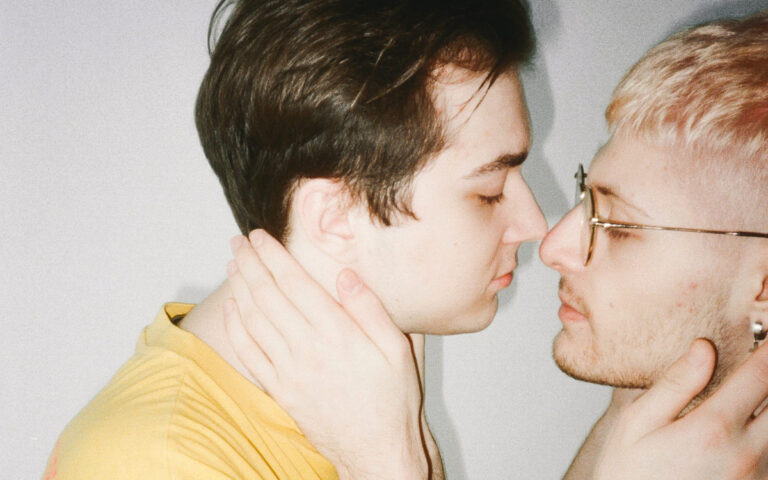Why do couples like to use baby talk and pet names?
Picture this: you’ve been dating someone for a while now, you really like each other and have both decided to be exclusive. Fast forward to a few months after your first meeting and you’re finally comfortable enough to ‘officialise the relationship’. It should be around this time that pet names make their way into your vocabulary. From ‘babe’ and ‘baby’ to ‘honey bunny’, ‘sugarplum’ and ‘cupcake’, no matter what you think, one thing is for certain—everyone else but you and your partner finds them disgustingly cheesy. Yet we all seem to do it in our own relationships.
But pet names are just the first step to displaying your love for someone in a rather nauseating manner. Enter baby talk, the holy grail of cringe-worthy displays of affection. While it is defined as “a type of speech associated with an older person speaking to a child,” it is also often used to interact with other adults, more precisely with individuals someone has affection for. In fact, in his work as a communication sciences and disorders researcher at Oklahoma State University, Ramesh Kaipa came across studies showing that as many as two-thirds of couples use romantic baby talk. This is a whole different type of love language we’re talking about here.
Why do couples use baby talk with one another?
Many adults like to use baby talk—the exaggerated pitch, tempo and intonation that parents use when talking to their little ones and what linguists also call “motherese” or “parentese”—no matter which language they speak. When applied with babies, research has previously shown that this style of speaking actually triggers the release of neurotransmitters that motivate infants to learn.
Even before a baby is born, the process of learning language has already begun. In the third trimester of pregnancy, when the infant’s ears are sufficiently developed, the intonation patterns of the mother’s speech are transmitted through the fluids in the womb. By the time an infant is born, they already have a preference for their mother’s language. At this stage, the infant is able to identify language through its intonation patterns.
Research has shown that babies prefer to listen to the exaggerated baby talk type of speech rather than typical adult-like speech—they pay more attention when a parent’s speech has a higher pitch and a wider pitch range compared to a speech with less exaggerated pitch features.
What about adults then—what’s our deal? As you’ve probably guessed by now, in the case of romance, this style of speech is less about learning and more about affection. According to the affection exchange theory (AET), which was proposed by the communication researcher Kory Floyd in 2001, specific vocal behaviours signal affection, just like some non-verbal behaviours do too. These include the use of a high pitch, exaggerated intonation and a soft voice—traits that just so happen to overlap with the way most people talk to babies.
But that’s not all of it. We also tend to prefer infantile speech because it strips down this medium of expression to its very core, leaving behind the many complexities and customs that come with routine adult conversations. By doing so, it allows us to freely explore the bond we’ve created with another person. As Kaipa explained in The Conversation, “The use of ‘idiosyncratic’, or personalized, communication is an important aspect of close friendships and romantic relationships. A bystander listening in might be flummoxed. But to the couple, it’s a sign of their bond—a boundary that sets them apart from everyone else. Pet names like ‘sweet pie’ and ‘nugget’ are a part of this, and they’ve been shown to signal greater relationship satisfaction among couples.”
Speaking of which, pet names containing the letters ‘b’ or ‘p’, such as ‘baby’ and ‘sweetie pie’ tend to be more common than, for example, ‘angel’ for a reason. “Commonly, when babies begin acquiring language, they use the vowel ‘a’, and consonants like ‘p’, ‘b’, and, ‘m’ because they are bilabial sounds caused by the closure or near closure of the lips and the easiest to pronounce,” Frank Nuessel, a linguistics expert at the University of Louisville, told Broadly back in 2017.
In another interview with Good Housekeeping, he further explained, “When parents, and usually it’s the mother who interacts the most, tries to teach the baby language, they use the terms of the child: ‘mama’, ‘papa’, ‘baba’. Then the adults transfer the language to other adults or significant others in their life, and they use those as terms of endearment.”
In today’s digital age—where relationships are casually made online and nothing seems private anymore—sharing a pet name, having a child-like timbre of voice and particular mannerisms that leave room for vulnerability in a relationship, become all the more valuable. Calling someone your baby, or babesky as I like to, allows you to distinguish them as being ‘worthy’ of real intimacy. And as corny as it sounds, it says a whole lot more than what we realise.






